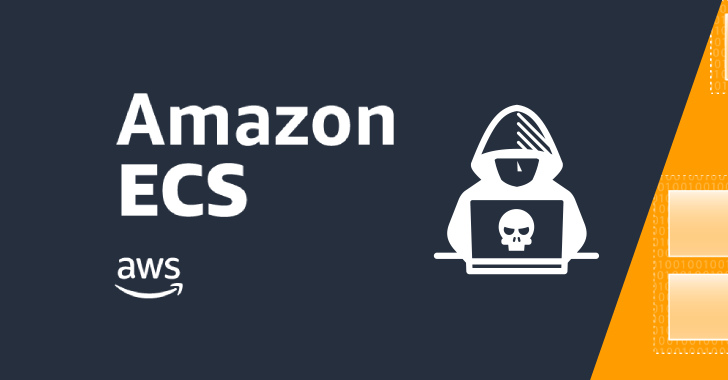
Are You Covered? Cyber Insurance Readiness Assessments in an Age of Rising Threats
In a world that relies heavily on technology, where data flows like water, and businesses of all sizes are interconnected through intricate networks, the importance of cybersecurity cannot be overstated. The digital landscape has become a battleground, with cybercriminals constantly seeking new ways to breach defenses and exploit vulnerabilities. As the threat landscape evolves, so too must our approach to protecting sensitive information and digital assets. One increasingly popular tool in this fight is cyber insurance, but how do you know if you’re adequately covered? That’s where cyber insurance readiness assessments come into play.
The Growing Threat Landscape
The threat of cyberattacks has grown exponentially over the past decade. No longer are hackers solely motivated by financial gain; they may also be state-sponsored actors, hacktivists, or simply cybercriminals looking for the thrill of disrupting systems. These threats come in various forms, including:
- Ransomware Attacks: In recent years, ransomware attacks have gained notoriety, crippling organizations and demanding hefty ransoms in exchange for decrypting data.
- Phishing: Phishing attacks continue to be a common method for stealing sensitive information by tricking users into revealing personal data or login credentials.
- Data Breaches: High-profile data breaches expose millions of records annually, resulting in financial losses and damage to a company’s reputation.
- Supply Chain Attacks: Hackers are targeting third-party vendors and suppliers to gain access to larger organizations through the supply chain.
- IoT Vulnerabilities: The proliferation of Internet of Things (IoT) devices has opened up new attack vectors, as many of these devices lack robust security measures.
As these threats persist and evolve, organizations need to be proactive in protecting themselves, not only through robust cybersecurity measures but also through cyber insurance coverage.
The Role of Cyber Insurance
Cyber insurance is designed to mitigate financial losses associated with cyber incidents. It provides coverage for a range of expenses, including:
Data Breach Costs: Covering the expenses related to notifying affected parties, credit monitoring, and public relations efforts.
Ransom Payments: In some cases, insurance can cover ransom payments made to cybercriminals.
Legal Costs: Legal fees can quickly escalate in the event of a cyber incident, and insurance can help cover these expenses.
Forensic Investigation: Determining the cause and extent of a breach requires expert investigation, which can be costly but is crucial for resolving the issue and preventing future incidents.
Business Interruption: Cyber insurance can also cover losses related to downtime, including lost revenue and additional expenses incurred during the recovery period.
Despite the clear benefits of cyber insurance, not all policies are created equal. To ensure your organization is adequately protected, you should consider a cyber insurance readiness assessment.
What is a Cyber Insurance Readiness Assessment?
A cyber insurance readiness assessment is a thorough evaluation of your organization’s cybersecurity posture and its preparedness for potential cyber incidents. The assessment aims to identify vulnerabilities and gaps in your cybersecurity strategy, helping you understand whether your current cyber insurance coverage is sufficient.
Here are some key elements of a cyber insurance readiness assessment:
- Security Posture Evaluation:
This involves assessing your organization’s current cybersecurity measures, including firewalls, intrusion detection systems, encryption practices, and employee training programs. The assessment identifies areas that may need improvement to meet industry standards and best practices.
- Risk Assessment:
A risk assessment evaluates the types of cyber threats that are most likely to affect your organization. This includes assessing your industry’s specific risks, the value of your data, and the potential impact of a cyber incident on your business operations.
- Coverage Analysis:
Your current cyber insurance policy should be closely examined to determine its strengths and weaknesses. The assessment will help you understand what is covered and what is not, and whether any policy adjustments are needed to align with your organization’s unique risk profile.
- Incident Response Planning:
A critical aspect of cyber insurance readiness is having a well-defined incident response plan in place. This plan outlines the steps your organization will take in the event of a cyber incident and ensures that everyone knows their roles and responsibilities.
- Employee Training and Awareness:
Human error remains a significant factor in cybersecurity breaches. The assessment may evaluate the effectiveness of your employee training programs and awareness campaigns to reduce the risk of insider threats.
- Regulatory Compliance:
Depending on your industry, your organization may be subject to various cybersecurity regulations. The assessment can help ensure that your cybersecurity practices align with these requirements.
Why Is a Cyber Insurance Readiness Assessment Necessary?
A cyber insurance readiness assessment is essential for several reasons:
- Tailored Coverage: By understanding your organization’s unique cybersecurity risks, you can work with insurance providers to tailor your coverage to address specific threats effectively.
- Cost Savings: Identifying vulnerabilities and improving cybersecurity measures can help prevent cyber incidents, ultimately reducing the potential financial losses associated with a breach.
- Peace of Mind: Knowing that you have comprehensive coverage and a well-structured incident response plan in place can provide peace of mind in an increasingly volatile digital landscape.
- Compliance: Many industries have strict cybersecurity regulations and requirements. Ensuring compliance can help you avoid costly fines and legal repercussions.
- Improved Resilience: A readiness assessment can improve your organization’s resilience in the face of cyber threats. It ensures that you are better prepared to respond swiftly and effectively to mitigate the impact of an incident.
Choosing the Right Cyber Insurance Provider
Once you’ve conducted a cyber insurance readiness assessment and identified your organization’s specific needs, it’s essential to choose the right insurance provider. Here are some tips to help you make an informed decision:
- Industry Experience: Look for insurance providers with experience in your industry. They will have a better understanding of the unique risks and challenges you face.
- Policy Customization: Seek providers that offer customizable policies. This allows you to tailor coverage to your organization’s specific needs.
- Coverage Limits: Consider the coverage limits offered by different providers. Ensure they align with your organization’s potential financial exposure in the event of a cyber incident.
- Reputation and Reviews: Research providers’ reputations and read reviews from other clients to gauge their level of customer satisfaction and claims handling.
- Legal Expertise: Given the legal complexities often associated with cyber incidents, it’s beneficial to work with providers that have a strong legal support network.
Conclusion
In an age of rising cyber threats, cyber insurance has become a vital component of risk management for organizations of all sizes. However, simply having a cyber insurance policy is not enough. To ensure you are adequately protected, it is crucial to conduct a cyber insurance readiness assessment. This assessment will help you identify vulnerabilities, tailor your coverage, and improve your organization’s overall cybersecurity posture. By taking these proactive steps, you can navigate the digital landscape with greater confidence, knowing you are prepared for the challenges that may lie ahead.
Contact Cyber Defense Advisors to learn more about our Cyber Insurance Readiness Assessment solutions.





